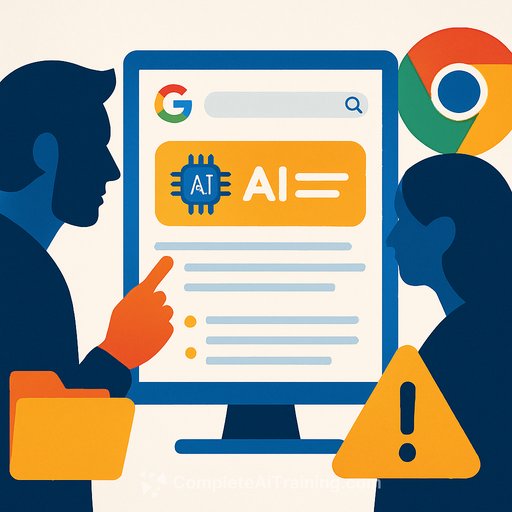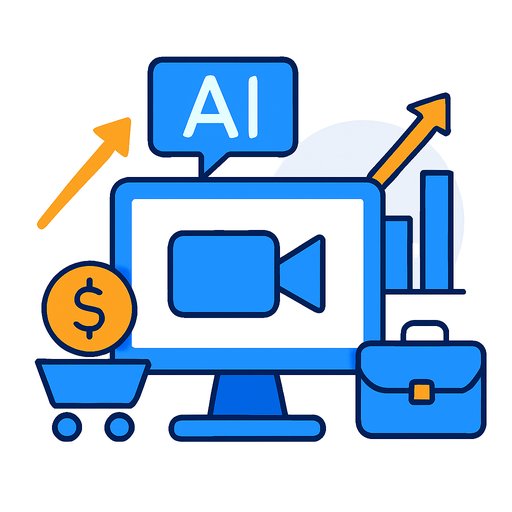German media groups file complaint against Google AI Overviews
September 19, 2025 - A coalition of media and digital organizations has filed a complaint with Germany's Federal Network Agency (Bundesnetzagentur) accusing Google's AI Overviews of undermining publisher traffic and ad revenue.
The complaint alleges Google's integration of AI-generated answers in search breaches key provisions of the EU's Digital Services Act. It urges the European Commission to open proceedings, arguing AI Overviews prevent clickthroughs, compete with editorial content, and reduce media reach. The groups warn of "serious consequences for media diversity, freedom of expression, and democratic discourse".
Signatories include the German media association BDZV (representing 300+ brands), the German Journalists' Association (DJV), the European Federation of Journalists, the European Magazine Media Association, the European Newspaper Publishers' Association, and AlgorithmWatch.
"Traffic killer" concerns from publishers
Daniela Beaujean, managing director of audio media association Vaunet, said on behalf of the alliance: "Google is placing its AI answers ahead of third-party content and is thus becoming a 'traffic killer'. As a result, Google AI Overviews reduces the reach and findability of independent and democracy-relevant private media. As a platform relevant for the dissemination of information and content, Google is called upon to counteract the corresponding risks, lack of transparency and misinformation."
Dr Christine Jury-Fischer, managing director of rightsholder organisation Corint Media, said: "Google is once again pushing back competing offerings, in order to consolidate its own position of power. If media diversity and democratic discourse are to be preserved, regulatory intervention is urgently needed. After all, 'digital sovereignty' not only means having an independent digital infrastructure, but also ensuring the independent, non-discriminatory distribution of digital journalistic content."
The complaint follows an antitrust filing to the European Commission in July by the Independent Publishers Alliance, and a separate request to the UK's Competition and Markets Authority for interim measures targeting AI Overviews' use of publisher content.
Google AI Mode rollout continues
Despite the pushback, Google is expanding AI features. AI Mode - a separate tab that generates longer, structured answers - is being added to the Chrome address bar so users can ask complex, multi-part questions without leaving the page.
Robby Stein, VP of product for Google Search, said users can "quickly ask follow-up questions and explore more content from across the web." Stein and VP of engineering Rajan Patel also announced "contextual search suggestions" in the address bar. For example, on a home furniture site, the search bar may prompt "what's the warranty policy?", showing an AI Overview on the right with follow-up options.
Why this matters for PR and Communications
AI Overviews are absorbing high-intent queries. Fewer clicks to publisher sites means fewer chances to control context, capture leads, or retarget. Your distribution, measurement, and messaging need a refresh.
- Quantify the impact: Track priority queries where AI Overviews appear. Compare clickthrough and time-on-page vs. prior periods. Test prompt variations that surface your brand's language in Overviews.
- Publish answer-first assets: Add clear, quotable statements, FAQs, and concise definitions to press pages and newsroom posts. Use structured data so key facts are machine-readable.
- Rebalance your mix: Increase owned channels (newsletters, podcasts, briefings) and partnerships that don't rely on Google referrals. Tighten source tagging to prove PR's contribution without proxy metrics.
- Policy and rights: Review content usage terms, robots.txt, and licensing positions with legal. Align with industry bodies on collective responses and potential remedies.
- Brand safety in AI summaries: Monitor AI Overviews for brand queries and sensitive topics. Create an escalation path with evidence captures and designated contacts at platforms.
- Prep spokespeople: Expect questions on "traffic killer" claims and media plurality. Keep a crisp narrative on publisher value, transparency expectations, and audience trust.
- Upskill the team: Build fluency in AI search behavior, prompt testing, and measurement shifts. See practical training by job role at Complete AI Training.
What to watch next
- Whether the European Commission opens proceedings based on the DSA complaint, and any interim measures.
- Bundesnetzagentur's response and coordination with EU bodies.
- How AI Mode scales beyond the US, and any changes to placement (address bar, right-side panel) affecting visibility and clickthrough.
- Publisher-led actions: additional complaints, collective bargaining, or technical standards for content usage.
- Impact on ad inventory and branded search performance as more answers live inside Google surfaces.
Distribution has shifted. Treat AI Overviews and AI Mode as always-on intermediaries and build for that reality now.
Your membership also unlocks:






